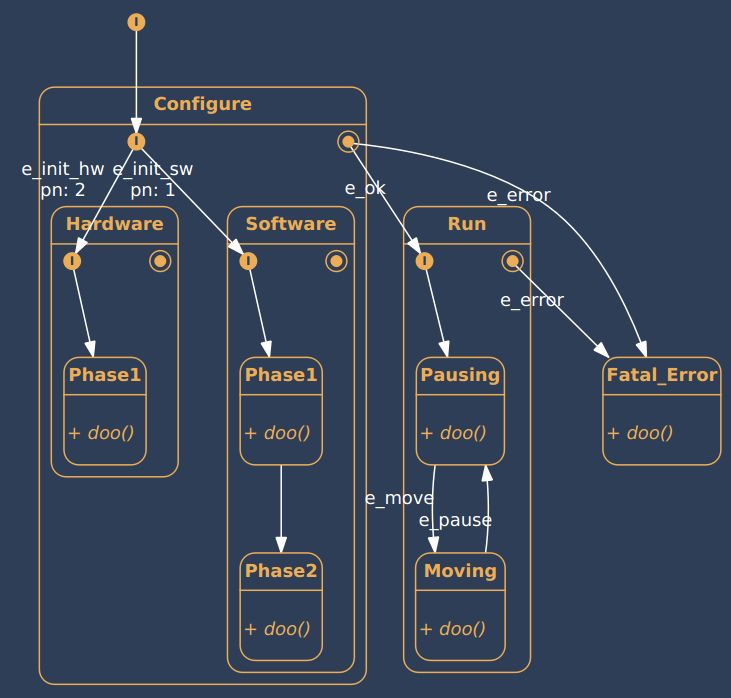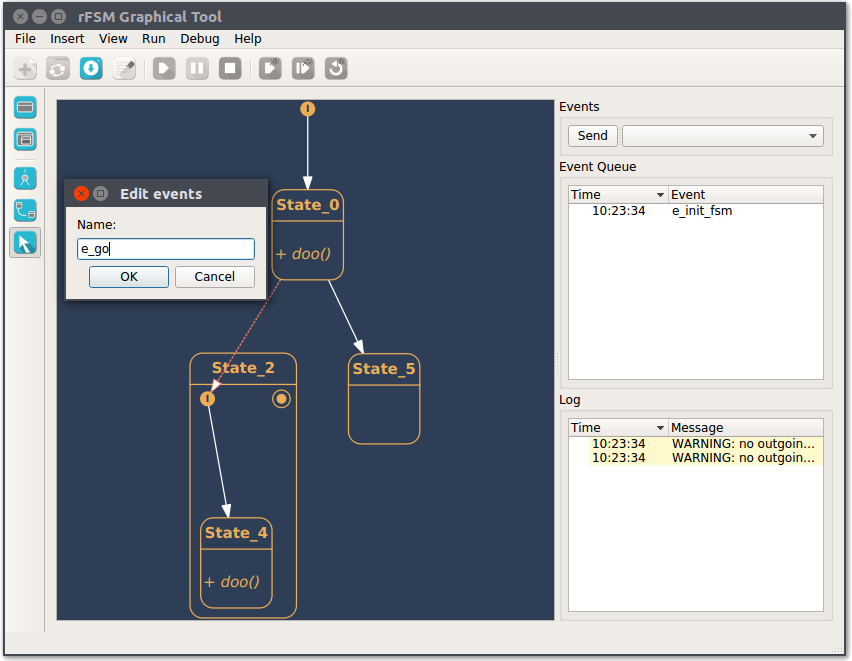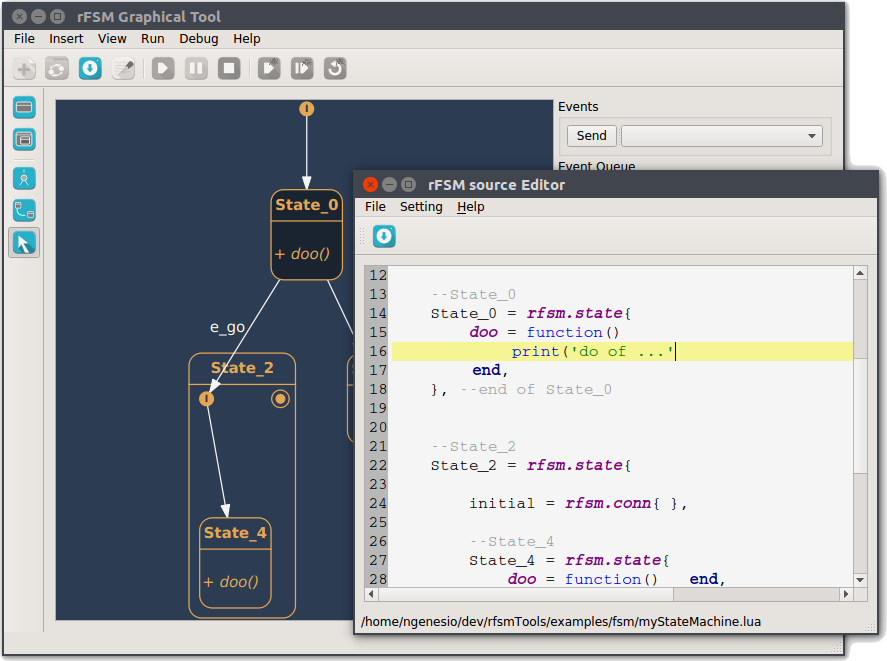Designed for developers
rFSM is a small and powerful Statechart implementation written in Lua for coordination of complex systems. Take maximum advantage of rFSM functionality using rfsmTools to accelerate your application deveploment, debugging and delivery.





